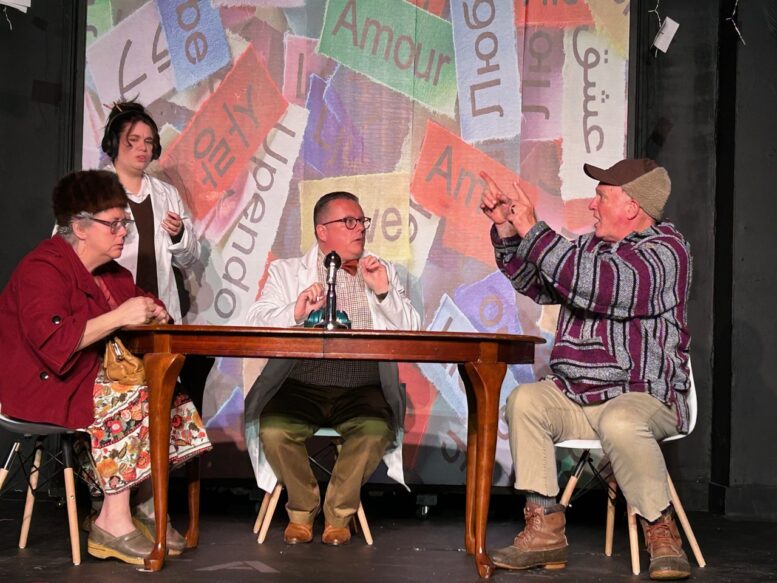By DAVID DUPONT
BG Independent News
For someone devoted to the preservation of language, George’s words most often fail him.
The linguist can speak multiple languages, including Esperanto, his favorite, but the language of love is not one of them.
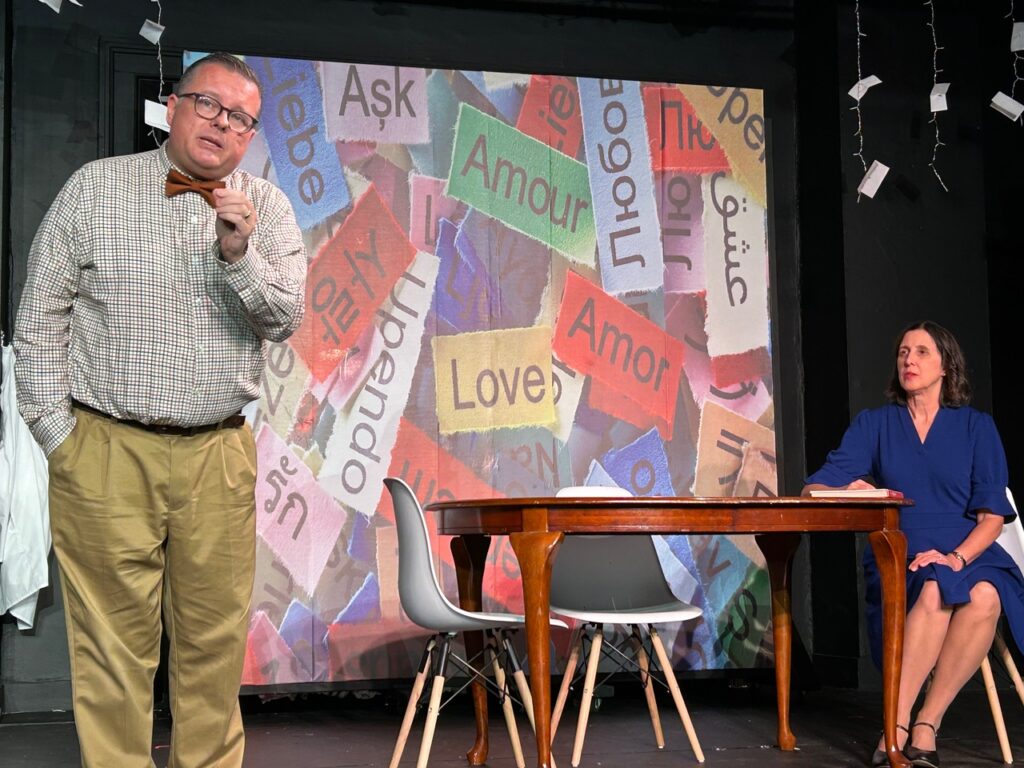
His story and the stories of those around him come to life in the Black Swamp Players’ production of Julia Cho’s “The Language Archive.” Directed by Fran Martone, the story of love — lost, unrequited, and rediscovered — will be on stage in the theater at 115 Oak St., Friday April 25, and Saturday, April 26 at 7:30 p.m. and Sunday at 1:30 p.m., continuing May 2 and 3 at 7:30 and closing with a Sunday matinee on May 4 at 1:30 p.m. Click for tickets.
We meet George (Heath Diehl) comfortably ensconced in his easy chair, talking about his love of languages, and puzzling over a mysterious note he discovers in his book. The note is cryptic, maybe poetic, and appears to be written by his wife Mary (Monica Hiris). But she denies writing it, though she complains he never talks to her.
The scene ends with her saying she is leaving him. He can’t believe it, and he is consumed with the phrase “take it back.” Those words echo loudly within him, so he thinks she can hear them. Mary cannot. Nor will she stay.
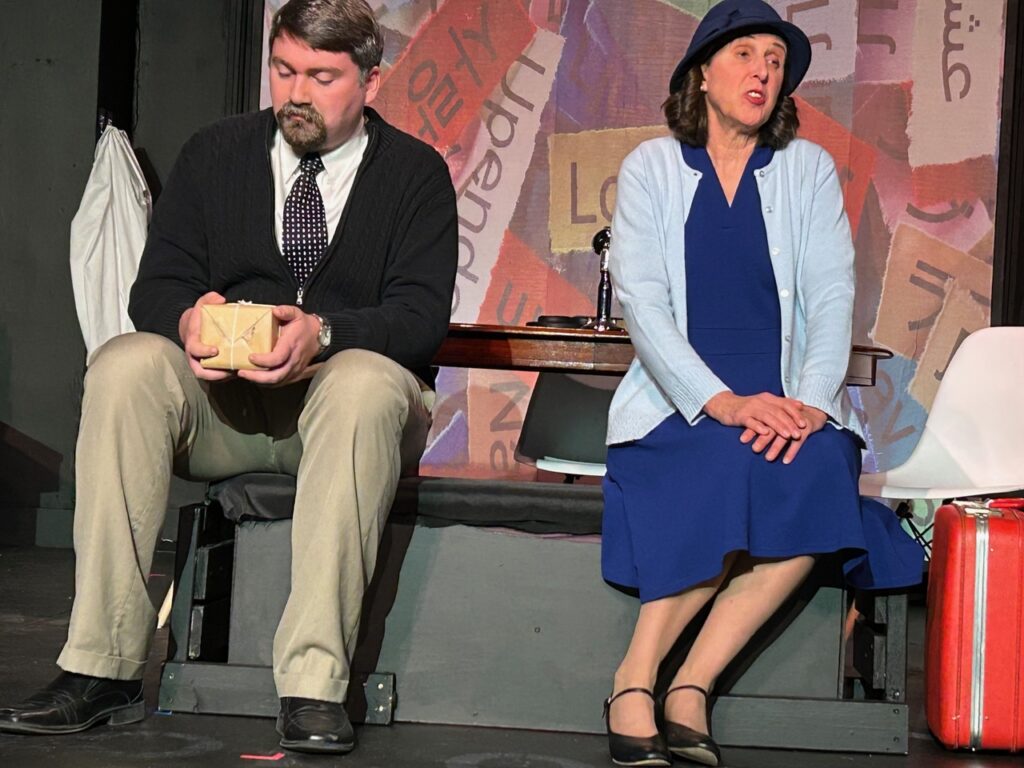
George runs the Language Archive that is devoted to saving languages facing extinction.
On the morning after his wife leaves him, he is set to meet a couple from an obscure Eastern European land. They are the last speakers of the language. That they are a couple is exciting to George and his assistant Emma (Elizabeth Coronado). Usually they find a sole surviving speaker, who just provides droning monologues. Now they have people who can engage in lively conversations. And when they arrive, fresh from their first ever airplane flight, they do indeed engage in lively back and forth — in English.
Alta (Diana DePasquale ) and Resten (Jeffrey Albright) bicker in colorful, broken English. Why English? George insists. Because they tell “the science man” that they are saying mean, ugly, angry words to each other, and English is good for that. Their language is a language of peace and wonder, not suited to the long-standing bitterness they need to express.
This bit is a comic tour-de-force by DePasquale and Albright. They embody this old couple from the Old World consumed by old grievances.
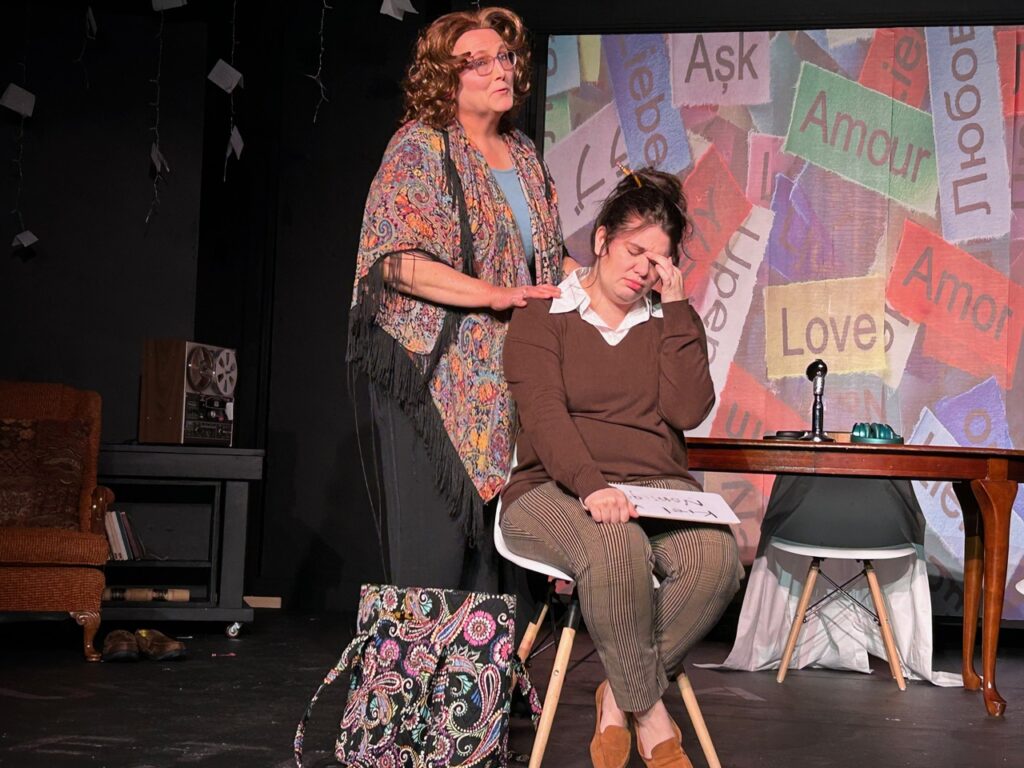
Emma, on the other hand, is consumed by her unspoken love of George. She hopes to give that love voice by learning to speak Esperanto. She struggles. Her lessons with her private instructor (Karen Noble) turn into counseling as much as tutoring.
It’s worth noting here, that L.L. Zamenhof created Esperanto to promote world peace. Late in the play he (Trevor Walsh) appears to Emma on a train and tries to help guide her.
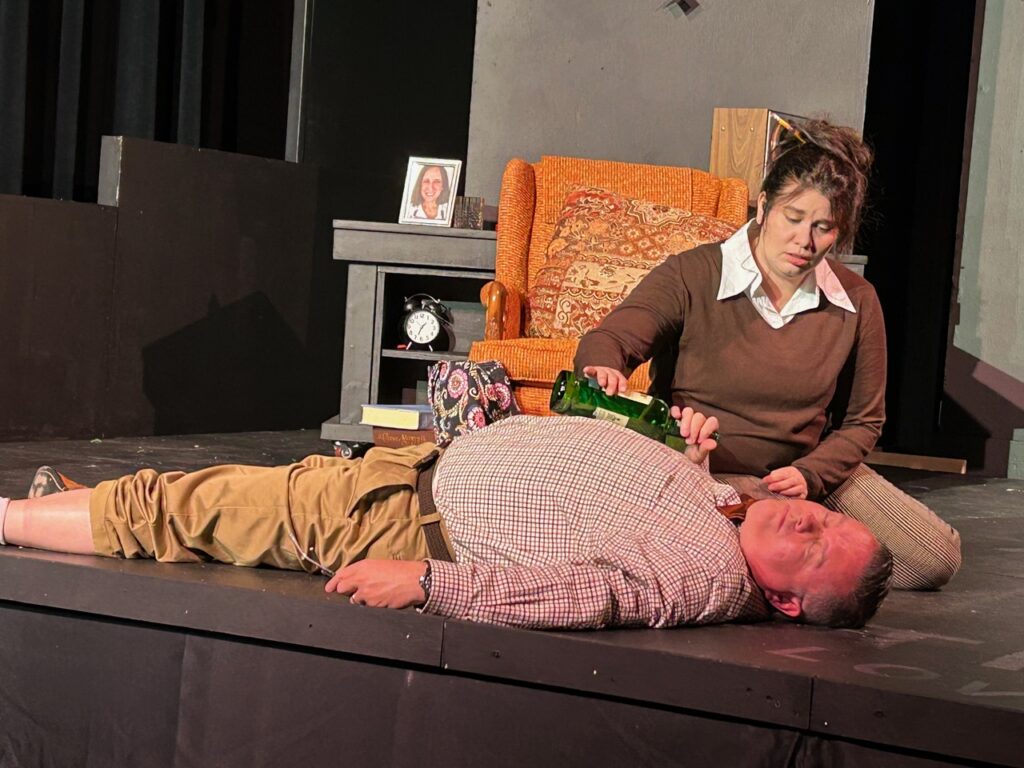
Walsh also plays a lost old man, contemplating suicide, who meets Mary on the train as she heads off into the unknown.
She ends up pursuing her passion for baking. Bread becomes her own language of love.
This well crafted script weaves these love stories together, letting them develop like bread dough.
Nothing is forced. The resolutions are well earned and quiet.
Now, as an avocational artisan baker, I am required to state that you do not eat bread warm fresh out of the oven. as Mary urges Emma. It ruins the crumb. Rather breads, such as sourdough that have long fermentation, taste better after curing for a while. Maybe that’s also true of love.

